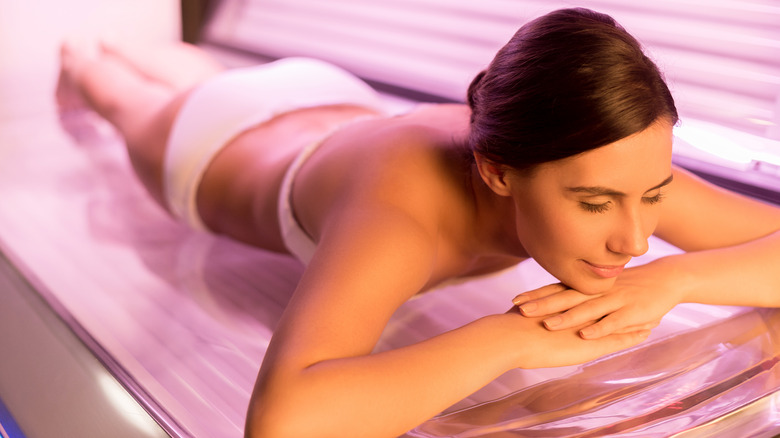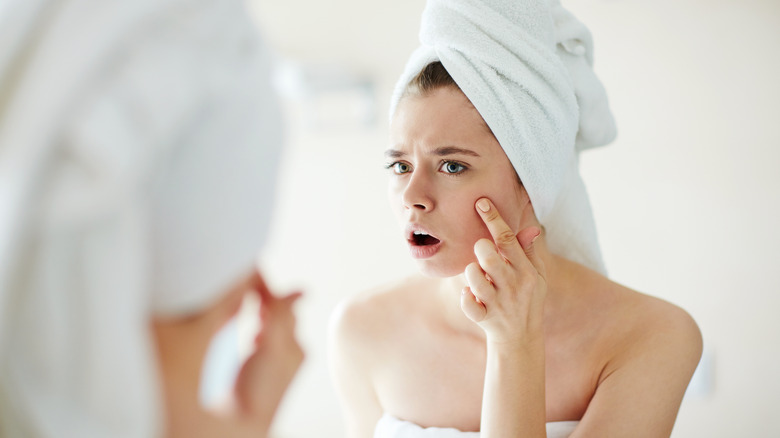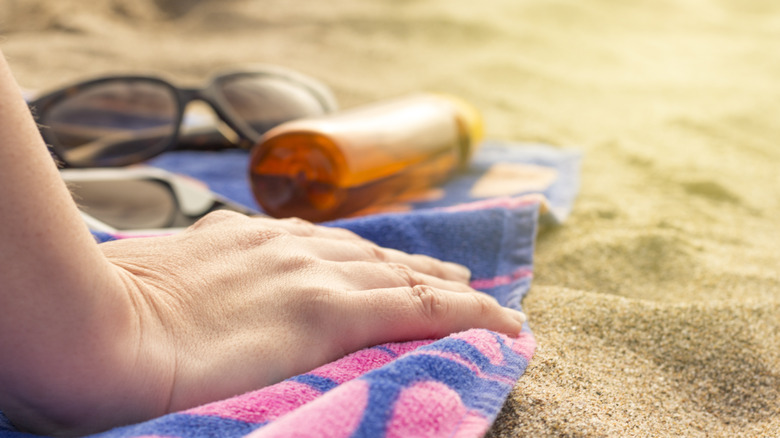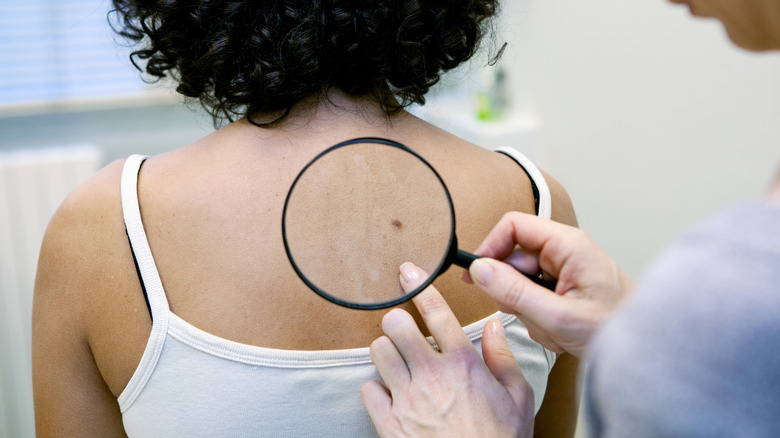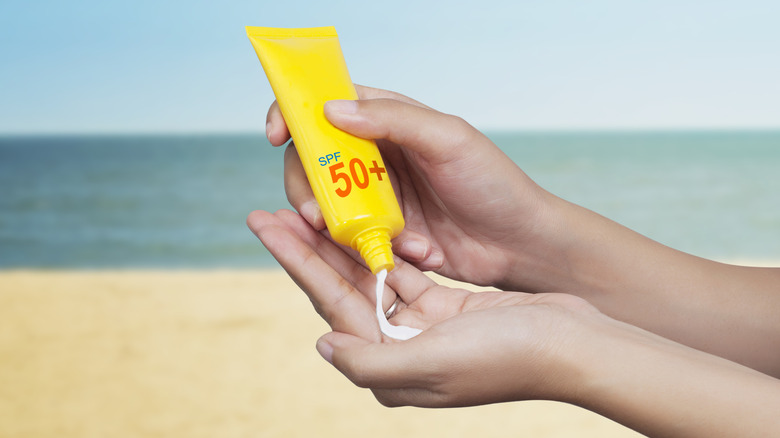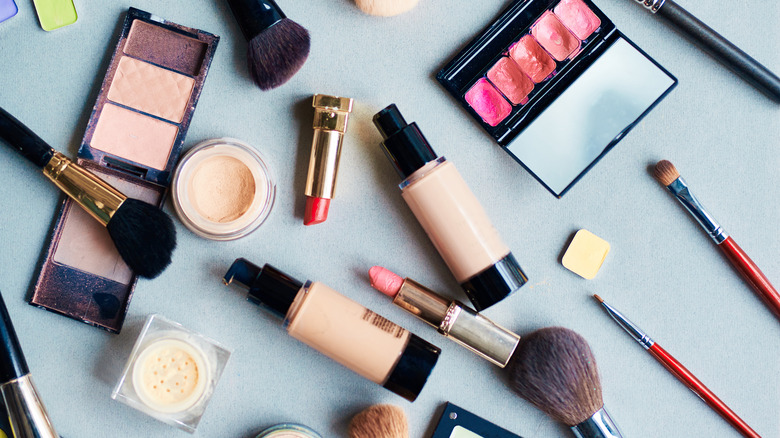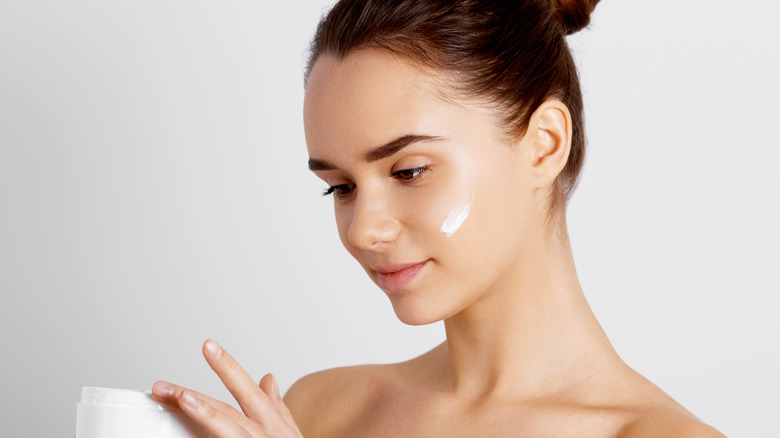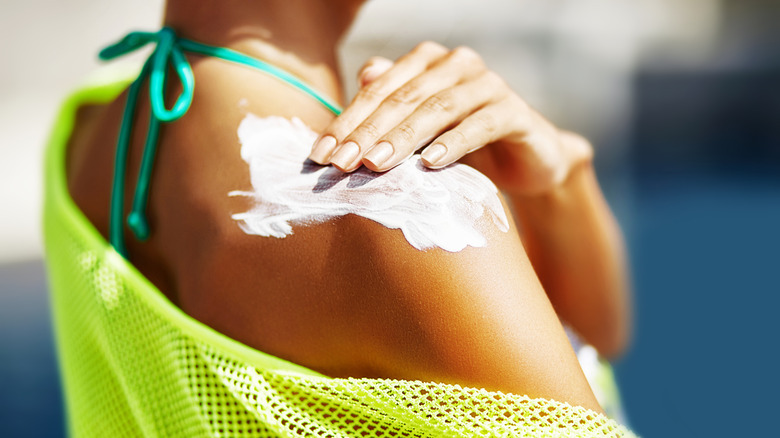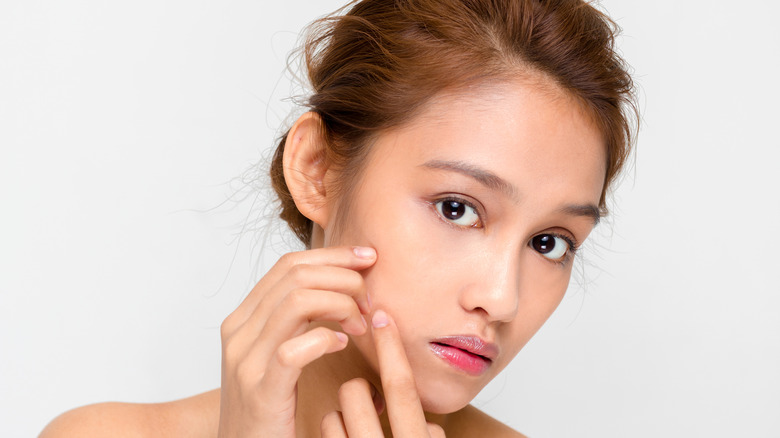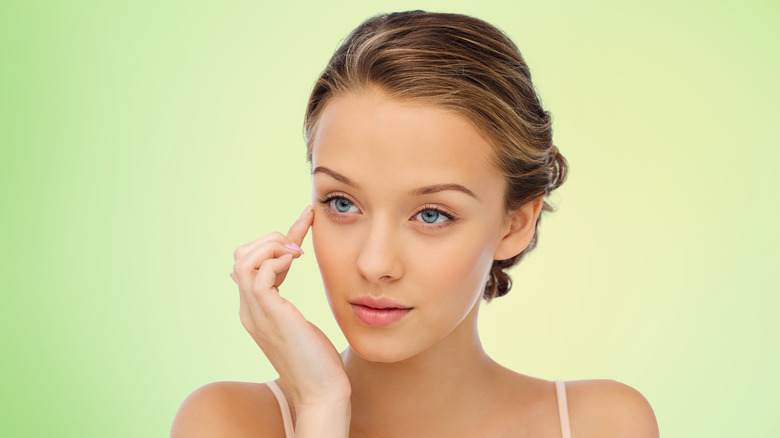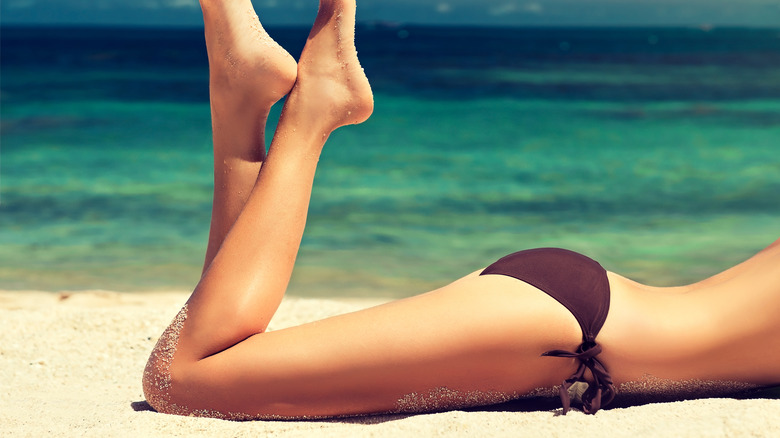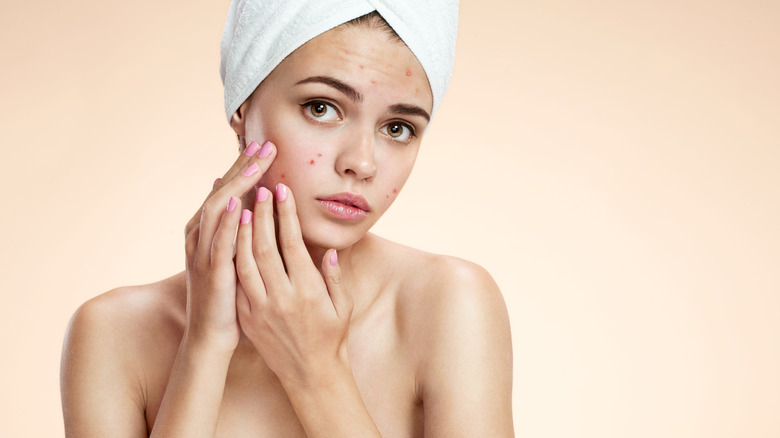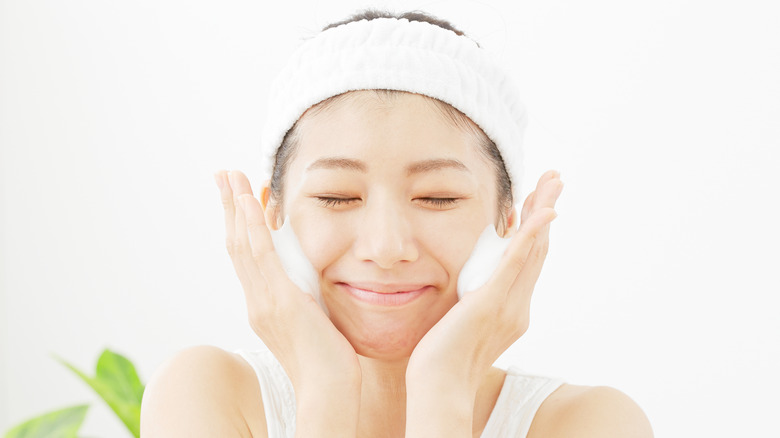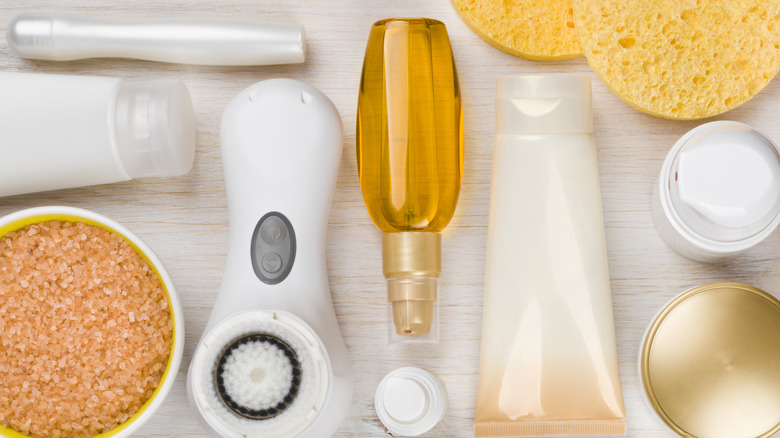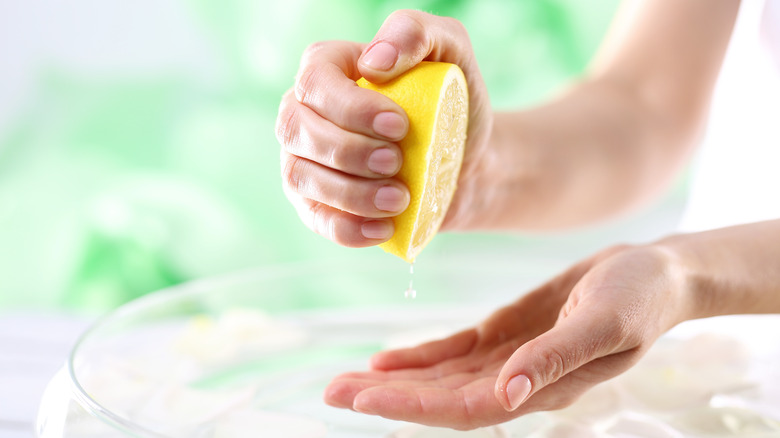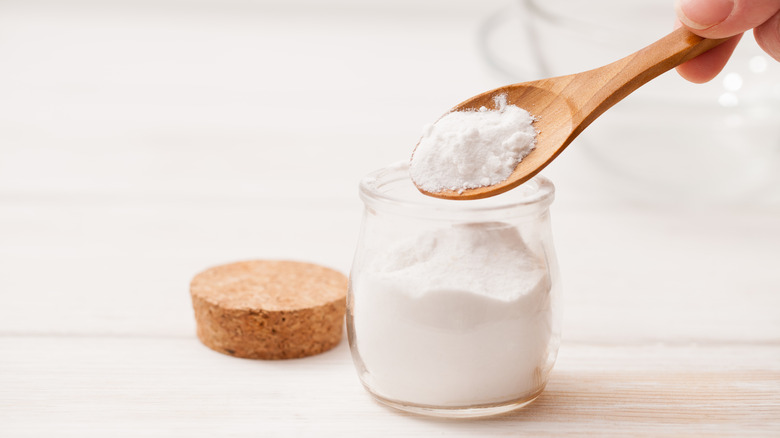Questions You Should Be Asking Your Dermatologist
With summer approaching, I can't help but start thinking more about my skin. I'm noticing a few more fine lines than I'd like to admit to, and I want to make sure I'm protected in the hot summer sun.
Most of us think about visiting the dermatologist if we've been experiencing an acne problem, but our local dermatologists can offer us a wealth of knowledge about every aspect of skin and health. Next time you're headed to the doctor, keep some of these questions in mind.
Do I really have to wear sunscreen for a quick errand?
This is a question that I've never asked, because I didn't want to know the answer. I assumed the answer would be yes, but it seems silly to glob on sunscreen so that I can walk from my car into the coffee shop. However, it truly is a question that needs to be considered.
"It's a good idea to apply sunscreen every morning before you apply your makeup. Sun damage is cumulative, so an hour here and an hour there adds up over the years," Dermatologist Margaret Ravits, M.D. told me. "Take a bottle of sunscreen with you in your bag so you have it ready when it's time to reapply later. Reapply every two hours or so and more often if you get sweaty or wet."
Is indoor tanning okay?
Now come on, we know what the dermatologist's answer is going to be to this one, but so many bright young women still worship the tanning bed. If you've been indulging in a little extra UV action, talk to your dermatologist about the real dangers.
"The UV rays from a tanning booth are harmful to your skin and increase your chance of developing melanoma and other forms of skin cancer," Dr. Ravits told me. "They also cause premature signs of aging such as wrinkles and brown spots."
In fact, people who try a tanning bed before turning 35 have a 75 percent increased risk of developing melanoma over the course of their lives! Tanning is responsible for more cases of skin cancer than smoking is for cases of lung cancer. Bottom line? It's just not worth it.
How can I treat my acne?
This is one of the most common questions dermatologists receive, and patients often ask it later than they should. So many of us waste time on over-the-counter products and home remedies, when we could just go right to the experts.
"If you get a pimple, be sure to treat it right away. If you try to ignore it, it will grow and become more difficult to treat," Dr. Ravits told me. "Don't pick at a pimple or it could cause scarring. See a dermatologist who can provide effective treatments such as a topical antibiotic lotion, oral antibiotic, retinoid, or cortisone shot."
Do I need sunscreen on cloudy days?
It's easy to remember sunscreen when you're hanging at the pool and the sun is beating down on you. However, if you're standing outside on a gloomy day watching your daughter play soccer, it just doesn't seem as important. However, the weather truly doesn't matter when it comes to wearing sunscreen.
"You should wear sunscreen everyday, even on cloudy and cool days to help protect your skin from sun damage, premature signs of aging, and skin cancer," explained Dr. Ravits. "You may not realize it, but even on cloudy days, up to 80% of the sun's UV rays can shine through the clouds."
Sure, putting on sunscreen is an extra step, but you probably aren't showing that much skin on cooler, cloudy days. "On cooler days, that might mean only the face, ears, neck, and back of the hands," Beverly Hills Dermatologist Tsippora Shainhouse, MD, FAAD told me. "Warmer weather usually means shorter sleeves and open necklines. Don't forget to apply sunscreen to your chest, shoulders, and arms, even if you are not hitting the beach that day."
How can I protect myself from skin cancer?
Skin cancer is all too common for young women. I asked several dermatologists their number one tip for avoiding cancer, and they all said the same thing.
"You should apply broad spectrum sunscreen (SPF 30 or higher) and lip balm (SPF 15+) everyday, rain or shine, to protect your skin from the sun's harmful UV rays and to minimize your risk of skin cancer," recommended Dr. Ravits. "Also wear a wide-brimmed hat, sunglasses with UV protection, and sun protective clothing. Seek shade during the peak sun hours (10AM-4PM). Don't tan outside or do indoor tanning."
What are the signs of skin cancer?
In addition to shading yourself from the sun, the next step in beating sun cancer is catching it early, and that means keeping a close eye on your skin. "Check your skin each month to see if your moles have grown or changed. It is important to book an appointment with a board-certified dermatologist if you notice any warning signs such as moles which are asymmetrical, have uneven, irregular borders, a variety of colors, a diameter larger than 6 millimeters, or if the color or size are evolving," explained Dr. Ravits. "If you notice that a mole is bleeding, itching, or changing, get it evaluated by a dermatologist. The sooner that skin cancer is diagnosed, the greater the likelihood of being able to successfully treat it."
While checking yourself for changing moles or marks is important, nothing replaces a visit with an expert. "People should visit a dermatologist at least once a year to get a full body skin exam where the doctor does a thorough examination of your skin and looks for signs of skin cancer," said Dr. Ravits.
What is the best way to monitor my moles?
So you're now committed to doing regular skin cancer checks. That's great, but it can be a little challenging to know where to start. Did that mole really change or am I just imagining that?
"It can be difficult to recognize changes in moles that you have had for a while, or even notice if a new one pops up. I teach my patients to create a mole map, in which they photograph each body part and print it on paper to create a map of their moles," Dr. Shainhouse told me. "They can use this map as a guide to check their moles every month or so and to look for a new lesion or if any have changed from the pictures. That way, they can come in to have specific lesions evaluated and treated promptly, if needed."
What should I look for in a sunscreen?
Not all sunscreens are created equal, so it's a good idea to talk with your dermatologist about the best one for you and your skin. "Look for the words 'broad spectrum,' and your sunscreen should have an SPF 30 or higher," said Dr. Shainhouse. "Sunscreen should be reapplied every two to three hours if you are spending time outdoors."
Do I need sunscreen if my makeup has SPF in it?
This is a big question for dermatologists, and most of the doctors I interviewed told me they wished more patients would ask that. "The sunscreen in your moisturizer or foundation is not sufficient on bright sunny days, because you do not use enough of it to give you sufficient UV protection," explained Dr. Shainhouse. "You should use about a teaspoon of sunscreen to cover your face ears neck and upper chest." The SPF in your makeup is great for going in and out of stores while running errands, but if you're spending time outdoors, grab the sunscreen.
What skincare products do I really need?
There are a lot of skin and anti-aging products, and it can feel overwhelming to try to pick one. They're also incredibly expensive. Don't hesitate to ask your dermatologist about the best products for your skin. It's not a silly question, and it could end up saving you big bucks.
"So often patients are using way too many products that can irritate their skin without benefit," Dermatologist Heather Rogers, MD told me. Save yourself some time and just ask.
Does higher SPF mean better protection?
I have fair skin, so I'm always looking for higher SPF sunscreens. SPF 100? Yes please! I'll be protected all day! However, that doesn't really account for what SPF actually means.
"An SPF of 50 means you can stay in the sun 50 times longer than you could without it before burning. But it does not take in account that sunscreen starts to break down as soon as it is applied to the skin," explained Dr. Rogers. "No matter the SPF, you use still need to reapply every two to three hours when outside enjoying the sun."
What's the difference between UVA and UVB rays?
Many sunscreens feature the fact that they protect against both UVA and UVB rays, but what does that really mean? "SPF only describes protection from UVB rays, the sunburn rays that also damage your skin's DNA. But the sun also has UVA rays that penetrate the skin more deeply causing wrinkles, brown spots, and DNA damage," said Dr. Rogers. "Instead of looking for a product with the highest SPF, look for a product with an SPF of 30 that is labeled with UVA and UVB protection or broad spectrum. Hunt until you find one that you like enough to reapply."
Some of the broad spectrum sunscreens are effective, but people avoid them because they end up giving you a completely white face. "The best, broadest protection comes from zinc oxide," said Dr. Rogers. "It used to make you look like a clown but now there are many great products from creams to sprays and powders. I use a 15 percent zinc-based sunscreen every day on my face."
Is it okay to pop a pimple?
We've all been there. You're getting ready for a night out with friends, and there it is. That giant pimple is just begging to be popped, right? According to the dermatologists, it's important to resist that temptation.
"The truth is, even though it feels really good to pop it, a lot can go wrong when we start picking," warned Dr. Rogers. "We often pick too much recreating a bigger wound for our body to heal. And when we squeeze it we can push some of the pus deeper into the skin causing more inflammation."
Do I really need eye cream?
As a frequent smiler and laugher, I have a lot of fine lines around my eyes. I'd like to find the right cream to help prevent more, but it can be a little confusing, especially when I don't even know if eye cream is the way to go.
"Eye creams are typically more expensive than face creams with fewer anti-aging ingredients because eye skin is sensitive. Most people can simply use their face cream around their eyes," said Dr. Rogers. "Eye creams are helpful for people with oily skin who do not use a heavy moisturizer, for a specific eye problem like dark circles or puffiness where a target treatment could help — but don't expect miracles."
Will a base tan prevent a sunburn?
As summer approaches, it's natural to want a little color before donning that new bikini. And hey, you need a little tan so you won't burn, right?
"No, no, no! There is no such thing as a healthy tan," Dr. Rogers told me. "Tanning is the skin's response to injury from the radiation of the sun. Your skin cell tans only after the damage to your DNA has begun, as an attempt to protect itself from further injury."
How can I prevent acne?
Most of us wait until after we've developed acne to visit the dermatologist, but it's a better idea to talk before it's an issue at all. One place to start, is your diet.
"Your skin is what you eat. Beware [of] dietary impacts on your skin. High glycemic index foods like pastas, candy, and sugary foods make it hard for the body's immune system to attack the bacteria that causes acne," New York Dermatologist Dr. Bobby Buka told me. "A surprising culprit is one that may help your cholesterol but not your skin — skim milk. The process of making milk less fatty removes some of the healthy components like fatty acids, which play a critical role in appearance of younger-looking skin."
What should I avoid?
Some of the skincare steps that we take to keep our skin youthful and glowing can actually damage it overtime. Always check with your dermatologist about which practices are beneficial and which ones do more harm than good.
"Overwashing your face does not make you super clean; it is a super myth. Acne is not associated with facial cleanliness," explained Dr. Buka. "We all have bacteria on the surface of our skin. It's the overgrowth of this bacteria that causes acne. In fact, overwashing destroys essential defensive oils that fight acne."
What are the best products for acne-prone skin?
If your skin tends to break out with even the slightest change, talk with your dermatologist about strategies to prevent these breakouts.
"I always advise our patients to check their cosmetics, sunscreens, moisturizers, etc., and use only products labelled with terms such as 'noncomedogenic,' 'non-acnegenic,' 'does not clog pores,' or 'won't cause breakouts,'" David Lortscher, MD, dermatologist and founder of Curology, told me. "The label 'noncomedogenic' indicates that the manufacturer considers the product to be designed for people with oily or acne prone skin and is less likely to cause acne. It is not a guarantee, but can be a useful guideline."
When can I expect improvement from my acne treatment?
When you have acne, you want it gone yesterday. It can be hard to wait and see, with every new treatment. However, always make sure to ask your doctor how long the benefits of a new treatment usually take. Knowing that help is on the way can allow you to feel a little more hopeful and patient.
"We can't judge how a patient is responding to acne treatment until at least six to eight weeks have passed, although most patients see improvement beginning around three to four weeks," Dr. Lortscher said. "We always remind our patients that patience is key."
Is it okay to use lemon juice on my skin?
It's always best to check any natural or DIY skin treatments with your dermatologist before diving in. We often assume that because something is natural it's safe, but that is not the case, especially when it comes to your skin.
One of the more common at-home treatments is lemon juice, and it can actually be dangerous. "Lemon juice as a home remedy for acne can backfire, so we do not recommend it, but it is tempting to try this as a remedy for acne and dark spots, as it's readily available, inexpensive, and you can find it touted online as an easy fix," said Dr. Lortscher. "However, using lemon juice on your skin can cause significant dryness, redness, and irritation. Lemon juice may have an exfoliating effect on the most superficial corneocytes (dead skin cells) of the epidermis, but there are better ways to exfoliate."
Dr. Lortscher recommends avoiding lemon juice on the skin, because the compounds in the lemon can react with sunlight, causing a rash and sunburn. So if you do try it, don't go outside!
Is it okay to use baking soda on my skin?
Another DIY acne treatment is baking soda, but just like lemon juice, it's just not worth it. "Some people try baking soda as a cost-effective scrub or mask — not the best idea! Scrubbing your face with a paste of baking soda would be very harsh and disturb your skin's natural barrier, or acid mantle," explained Dr. Lortscher. "A very dilute baking soda mixture as a cleanser for acne, while not something we recommend, would likely not cause harm for most people, but it's just not worth risking, as your skin may react to this assault by becoming red, raw and sensitive. In susceptible people, this irritation can lead to acne breakout."
What should I be doing to look my best?
At the end of the day, we're all just trying to look and feel our best, so it's not a bad idea to ask your dermatologist how to do that. Take advantage of her knowledge and ask away!
"Likely due to greater awareness and acceptance, I am seeing more and more people in their late twenties and thirties coming in concerned about newly formed fine lines on their faces," Dr. Jeremy Brauer, a New York City based dermatologist, told me. "They are often focused on treating that one line or concern, and I spend a good deal of time explaining the anatomy of the aging face and the need for a full-face, combination approach."
You and your dermatologist can work together to come up with the right skincare regimen for you. "Most importantly, I always emphasize the appropriate use of broad spectrum, UVA/UVB protective sunscreen," said Dr. Brauer. "Treatment of the aging face really depends on the individual, their skin, and their goals, and it is not about chasing one wrinkle at a time."


